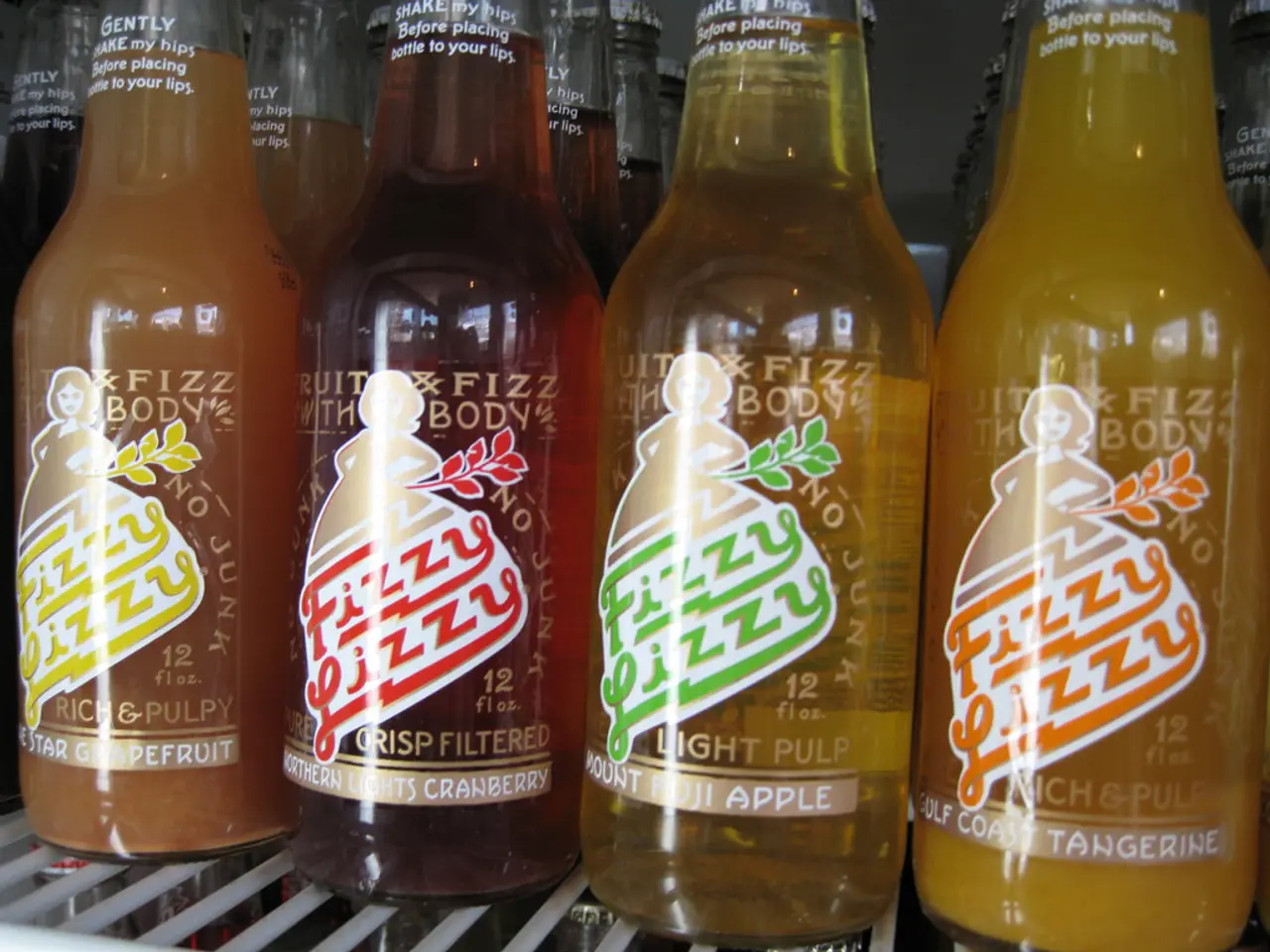Connection Between Children's Energy Drink Consumption and Mental Health Problems Explored
Energy drinks, popular among adults for their stimulating properties, can pose significant risks to the mental and physical health of children and adolescents. These drinks, often containing high levels of caffeine, sugar, and other stimulants, can disrupt the developing brains and bodies of young people, leading to a range of negative outcomes.
Adequate sleep is essential for children's cognitive development and emotional well-being. However, caffeine, a common ingredient in energy drinks, can disrupt sleep patterns, leading to insomnia or poor-quality sleep in children. This lack of sleep can negatively impact children's mood, memory, and overall mental health.
Several studies have suggested a potential link between energy drink consumption and the development of mental health issues in children. The potential risks associated with energy drink consumption in children and adolescents include mental health issues, such as anxiety, depression, and stress. Adolescents who consume energy drinks regularly may be more likely to experience symptoms of these conditions.
Excessive consumption of caffeine can have adverse effects on the developing brains and bodies of children. In children, caffeine can lead to restlessness, irritability, and difficulty concentrating. Another study found a higher risk of problematic behavior, including aggression and attention problems, in adolescents who consume energy drinks.
Caffeine stimulates the central nervous system, increasing heart rate, blood pressure, and anxiety levels in children. The high caffeine content and other stimulants found in energy drinks may contribute to these negative outcomes.
To mitigate these risks, parents, educators, and regulatory bodies can take several steps. Parents should educate children about the risks of energy drinks, monitor and limit their caffeine intake, encourage hydration with healthier options like water or milk, and consult healthcare providers—especially if the child is on medications for conditions like ADHD, as energy drinks can interact dangerously with these drugs.
Educators can incorporate awareness programs about caffeine and its effects into school curricula, discourage energy drink use among students, and promote healthier alternatives for energy and focus.
Regulatory bodies are urged by experts to impose stricter regulations on marketing energy drinks to minors, set lower limits on allowable caffeine content for youth, and possibly ban sales to children and adolescents to prevent caffeine intoxication and its adverse mental and physical health consequences.
Encouraging the consumption of water, milk, and natural fruit juices can help reduce the reliance on energy drinks. By taking these steps, we can protect the mental and physical health of our children and adolescents.
- The disrupted sleep patterns in children, caused by caffeine found in energy drinks, can lead to negative impacts on their mood, memory, and overall mental health.
- Numerous studies have suggested a potential link between energy drink consumption and the development of mental health issues such as anxiety, depression, and stress in children and adolescents.
- Expert recommendations for mitigating the risks of energy drink consumption in children and adolescents include imposing stricter regulations on marketing, setting lower limits on allowable caffeine content, and possibly banning sales, as these measures can prevent caffeine intoxication and its adverse mental and physical health consequences.




